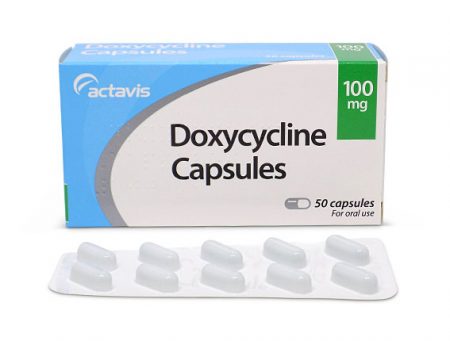Antibiotic Doxycycline May Block PTSD Symptoms
 A 2017 proof-of-concept study suggests that the antibiotic doxycycline can block the formation of negative thoughts and fear memories, perhaps offering a new way to treat or prevent post-traumatic stress disorder (PTSD).
A 2017 proof-of-concept study suggests that the antibiotic doxycycline can block the formation of negative thoughts and fear memories, perhaps offering a new way to treat or prevent post-traumatic stress disorder (PTSD).
In the study by Dominik R. Bach in the journal Molecular Psychiatry, healthy adults who received doxycycline had a lower fear response to fearful stimuli compared to healthy adults who received a placebo. The 76 participants received either doxycycline or placebo and then were taught to associate a color with an electric shock. Later, they were exposed to the color accompanied by a loud sound (but no shock), and their startle response was measured by tracking eye blinks, an instinctive response to sudden threats. Bach and colleagues found that the fear response was 60% lower in those participants who received doxycycline, suggesting that the antibiotic disrupted the fear memory linking the color to a threat.
The theory is based on evidence that doxycycline can inhibit metalloproteinase enzymes, which are involved in memory formation.
While in the study doxycycline was delivered before the fearful event occurred, there is hope that the antibiotic could also do some good after the fact. There is growing evidence that actively recalling a traumatic event can open a ‘memory reconsolidation window’ during which emotions associated with that event are open to change. Bach and colleagues hope to follow up with studies involving this reconsolidation window.
Another line of research is exploring how pain medications may reduce the emotional power of traumatic memories, because intense pain strengthens memory consolidation.

